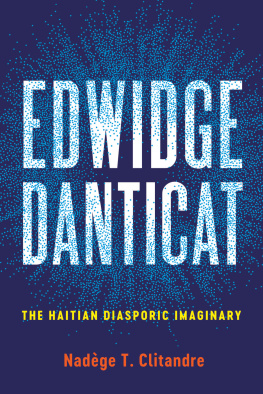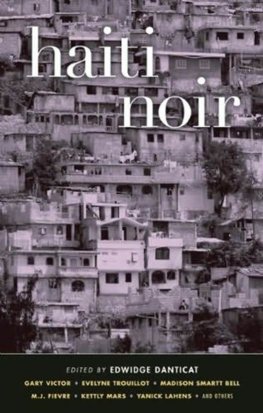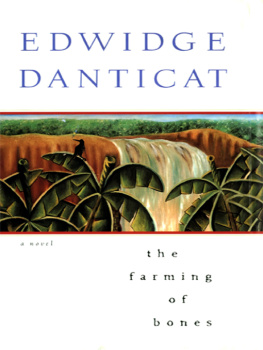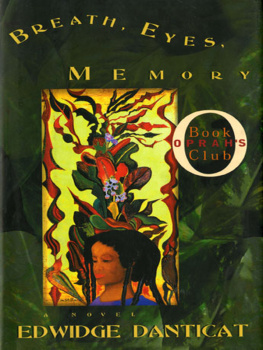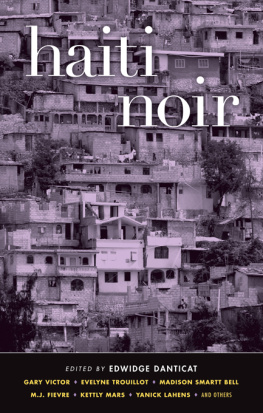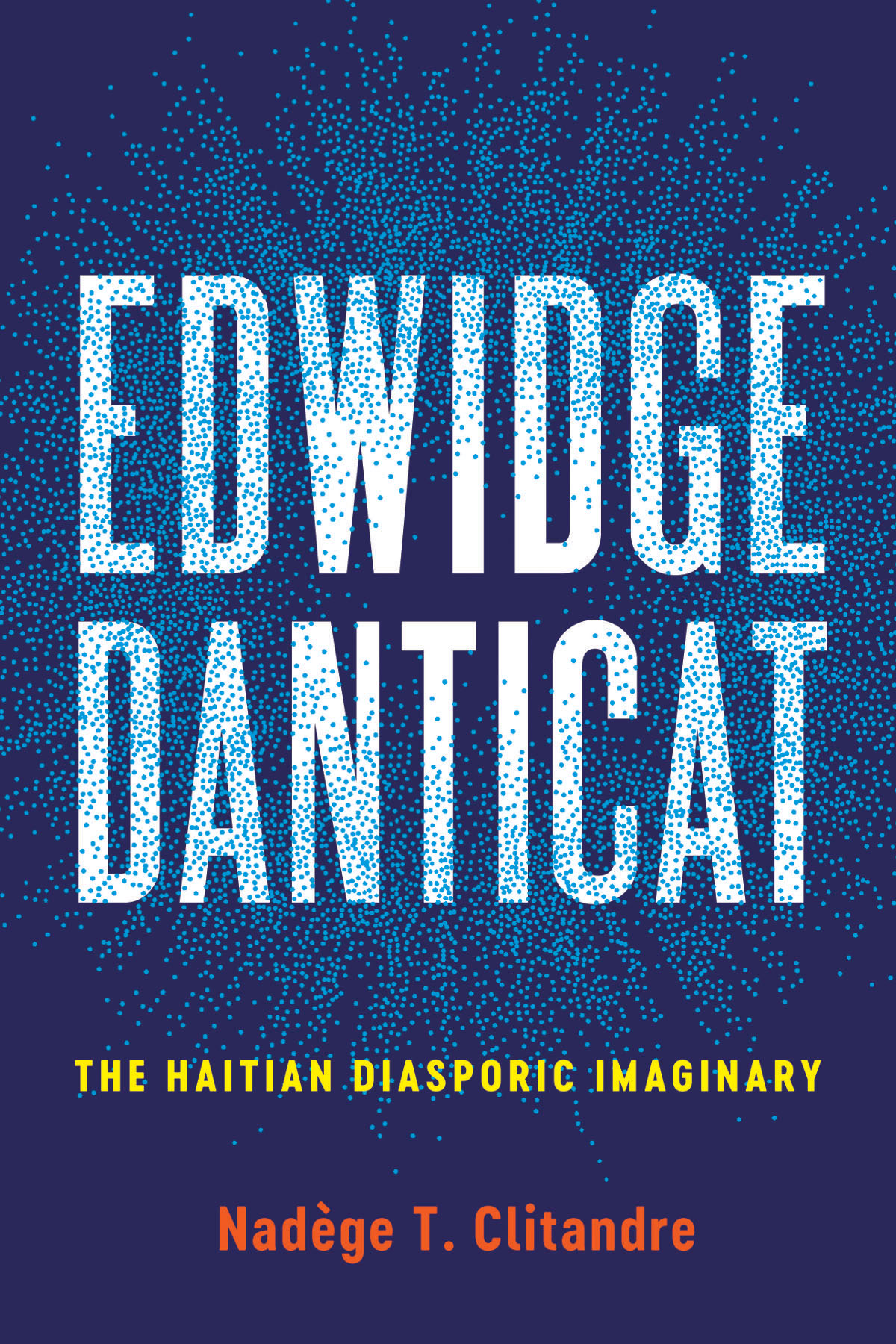Nadge T. Clitandre
Library of Congress Cataloging-in-Publication Data is available for this title.
I too yearn not for a singular authoritative voice on any particular event or subject, or disaster, but for a chorus of voices.
H AITIAN A MERICAN writer Edwidge Danticat (b. 1969) is one of the most recognized writers in North America and around the world today. She is also one of the most celebrated contemporary Caribbean writers in the diaspora. She is indeed among the foremost of Haitian writers writing in English and has been dubbed the voice of the Haitian diaspora. After the publication of her debut novel, Breath, Eyes, Memory, the New York Times Magazine named Danticat one of thirty artists under thirty to watch. Danticat was a finalist (in fiction) for the National Book Award in 1995 for her short story collection, Krik? Krak!, making her the youngest nominee. Shortly after, she was awarded the Pushcart Prize (1995) for Between the Pool and the Gardenias and the Granta award for best young American novelist (1996) for Breath, Eyes, Memory. Two years later, the novel was selected for Oprah Winfreys Book of the Month Club, springing Danticat into the national spotlight. In 1999, Danticat received three prestigious awards for her second novel, The Farming of Bones; the American Book Award for excellence in American literature (1999); and the Super Flaiano of Literature Prize (1999), one of a set of Italian international awards recognizing achievements in the fields of creative writing, cinema, theater, and radio/television. In 2005, Danticat became a finalist for the PEN/Faulkner Award and received the Anisfield-Wolf Book Award, both for The Dew Breaker, which was published the year before. The latter stands out as the only American prize that recognizes books that have made important contributions to our understanding of racism and human diversity. The Dayton Literary Peace Prize, which Danticat received in 2008 for her 2007 memoir Brother, Im Dying, is also distinctive in its recognition of US literary texts that contribute to the promotion of peace. Nominated for the National Book Award for Brother, Im Dying, Danticat was also bestowed the National Book Critics Circle Award for autobiography in 2007 for Brother, Im Dying. She is a recipient of the prestigious MacArthur Fellows Program Genius Grant, which she received in 2009. Most recently, Danticat made the 2014 Andrew Carnegie Medal for Excellence in Fiction short list for her novel Claire of the Sea Light and is the winner of the 2018 Neustadt International Prize for Literature, a lifetime achievement award that recognizes a writers entire body of work in any language.
Danticats work has been translated into French, Korean, German, Italian, Spanish, and Swedish, among other languages. She is the subject of hundreds of academic journal articles and dissertations, including my own, and numerous book chapters and articles published since the late 1990s. Her short stories have been anthologized profusely. A major contemporary American author with a BA in French literature and an MFA from Brown University (as well as two honorary degrees from Smith College and Yale University), Danticat has produced important works of fiction and nonfiction in diverse genres that merit full-length study. Despite the international recognition she has received and a plethora of important subjects and themes she takes up that dominate the fields of postcolonial studies, feminist studies, Caribbean studies, (African) diaspora studies, Haitian studies, literary studies, and global studies, Danticats work, which now spans nearly a quarter of a century, has not until now received a single sustained full-length interpretive literary analysis. Edwidge Danticat: The Haitian Diasporic Imaginary offers a concentrated and extensive multidisciplinary analysis of the writings of Danticat at the intersection of various fields.
Heretofore, there was only one book devoted entirely to the work of Edwidge Danticat. Edited by Martin Munro, a prominent scholar of Francophone and Caribbean literature and culture, Edwidge Danticat: A Readers Guide (2010) is a collection of fourteen essays by different authors and Danticats contemporaries. The anthology concentrates on framing the work of Danticat in both its Haitian literary tradition and in the broader North American and Caribbean context. While it has been well received as both a great pedagogical tool and an important contribution to furthering serious scholarship on the prolific writer, it does not address why Danticats work resonates worldwide or why a writer who homes in on the particular experience of Haitians in Haiti and the diaspora has such a global reach. Moreover, as Munro himself admits, the diasporic dimension of Danticats work is not directly addressed in the anthology. In her review of the edited volume, Maria Rice Bellamy states, There is a notable omission of [Danticats] connection to the larger generation of diasporic, cross-cultural, immigrant writers.which includes the African diasporic literary tradition, the transnational contours of immigrant writers, and the intense articulations of displacement, makes it difficult to completely recognize Danticats wide-ranging appeal and understand her overnight success in the late nineties, during a time when the very field of diaspora studies was established as a result of migration concerns and growing interest in dispersed ethnic populations. This book seeks to rectify this oversight of the missing diasporic element; it picks up where Munros collection leaves off by emphasizing diaspora and offering a cohesive and overarching theme that is needed to comprehend Danticats corpus and central preoccupation with the experience of displacement and its affective dimensions.
This book is an effort to explore the breadth and depth of Danticats oeuvre through an examination of the relationships among nation, diaspora, and the imaginary in the contemporary moment, a relationship that many scholars have been scrutinizing for the past twenty-five years. Unfortunately, Danticats influential ideas about the Haitian immigrant experience have not been comprehensively analyzed in the context of the diasporic imaginary. By focusing on Danticats inscription of diasporic subjects and articulation of diasporic imaginary, I show that the diasporic component in Danticats writings is a central tenet that cannot be ignored and indeed engenders Danticats universal appeal well into the twenty-first century. The narratives of Danticats diasporic subjects are foregrounded not only to tell the stories of fragmentation and difference but also to organize diaspora as a collective and diverse unit and to create an archive that can contain both national and diasporic histories, as well as old and new narratives of homeland and articulations of home as both geographical spaces that can be mapped and symbolic places that are imagined. Thus Danticats diaspora, as I explore in this book, is a lived and imagined phenomenon that insists on both cultural and historical preservation and transformation and involves symbolic returns that can engender real returns and fruitful dialogic relations with the homeland.

